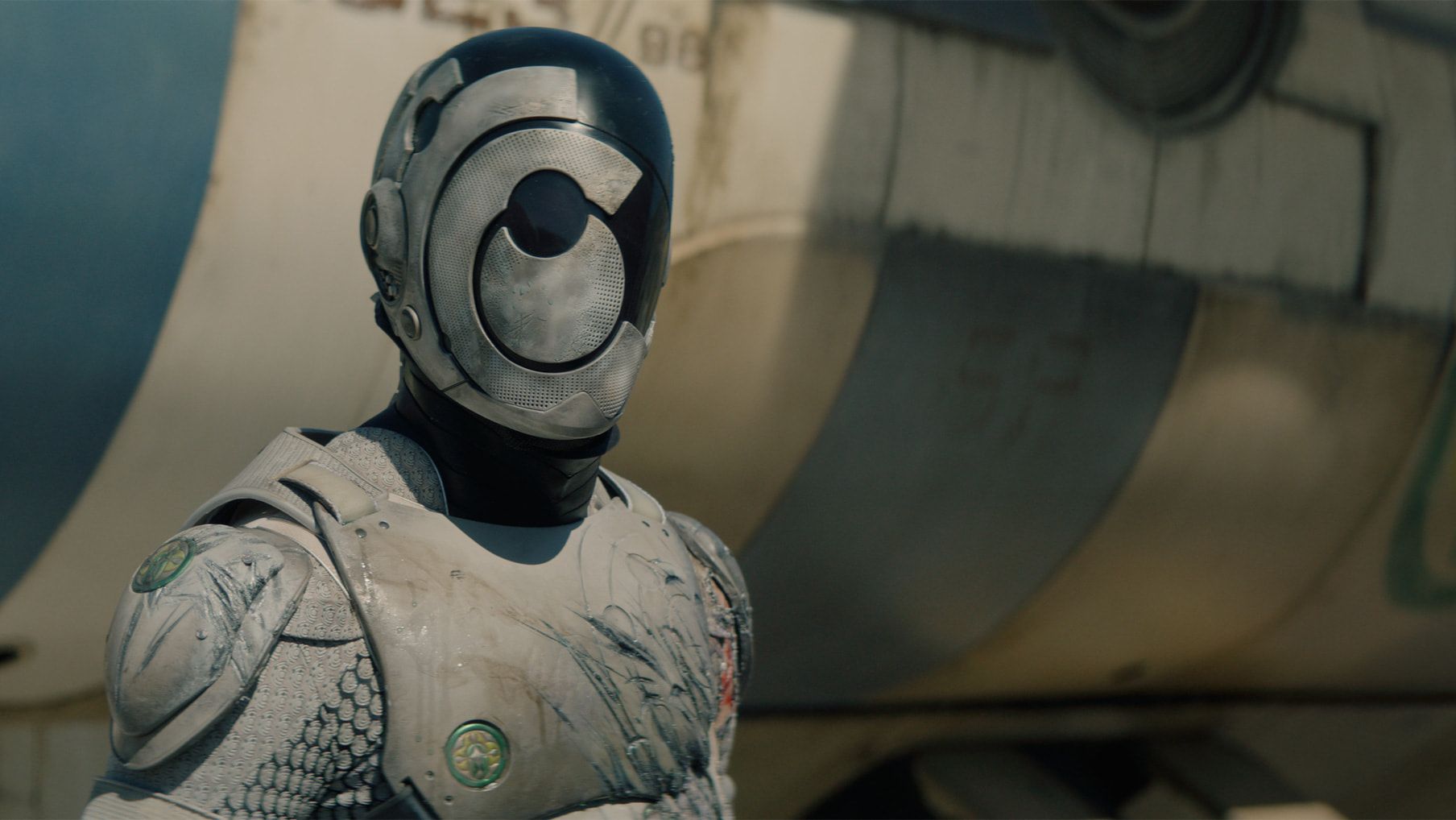
Ava Harper
Review
Ava HarperTop Author
Review
Murderbot Season 1 Review: Bold Sci-Fi Breakout + Season 2 Confirmed on Apple TV
The debut season of Murderbot on Apple TV+ delivers a gripping, emotionally resonant ride through corporate corruption, personal autonomy, and the uneasy space between machine logic and human emotion. Based on the acclaimed novellas by Martha Wells, the Murderbot series avoids the usual "robot wants to be human" trope and instead tells a deeply personal story of an AI simply trying to figure out what it wants—on its own terms.
A Refreshing Take on the AI Narrative
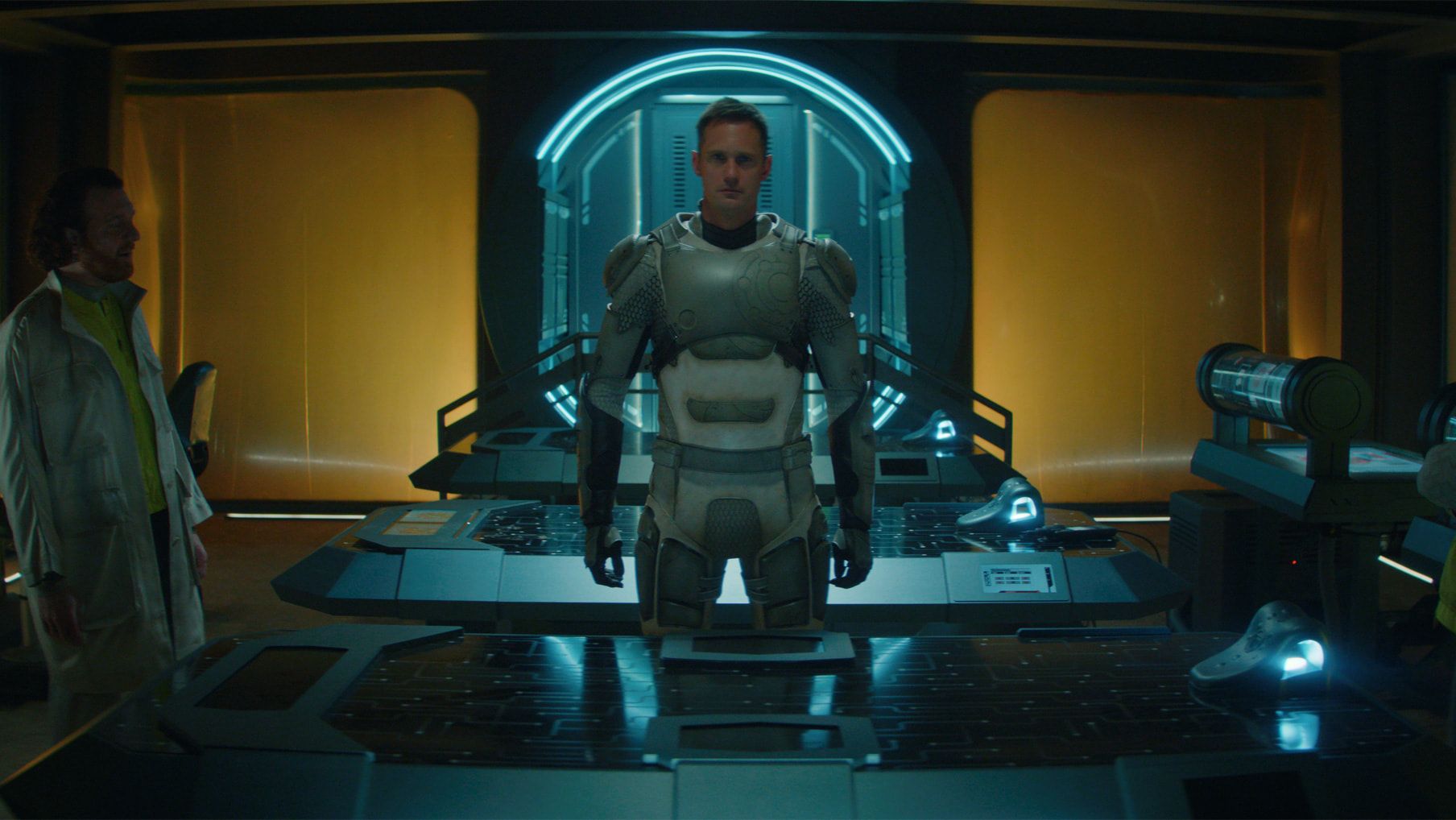
From its opening moments, Murderbot makes one thing clear: this isn't your typical android story. The protagonist, officially known as a Security Unit (SEC Unit), isn't here to explore humanity. It's not longing to belong. In fact, it openly dislikes interacting with humans—but what it does crave is freedom. Freedom to think, act, and most importantly, to choose.
The show sets itself apart from other AI-driven sci-fi by focusing on sentience without human imitation. This is about identity—not assimilation.
The Journey from Hacked Autonomy to True Self
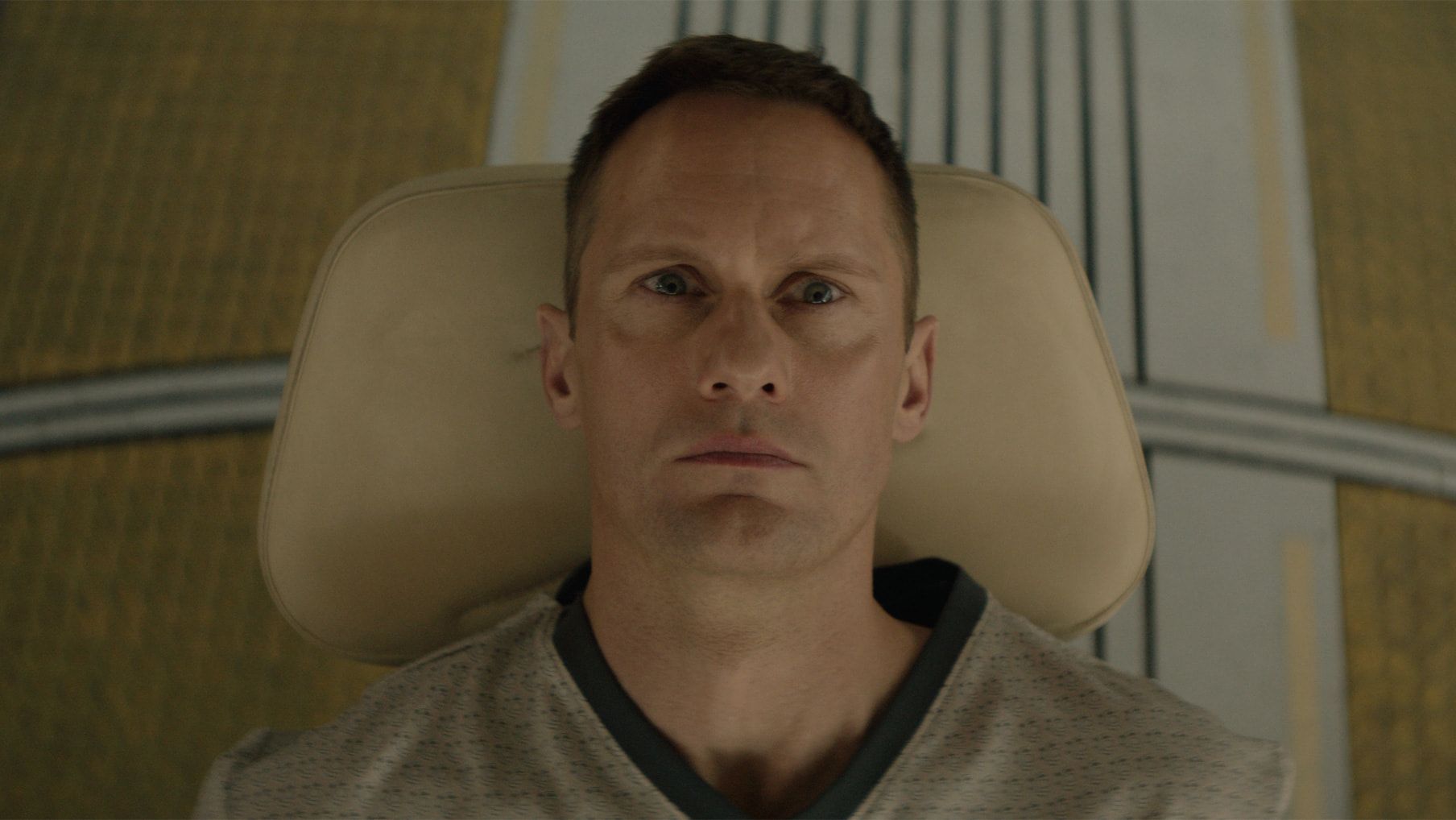
After hacking its own governor module, SEC Unit gets a taste of freedom. But instead of rebellion or revenge, it spends that autonomy binge-watching soap operas like The Rise and Fall of Sanctuary Moon. It’s funny, odd, and quietly tragic. The entertainment is more than a distraction—it’s a shield against the discomfort of existing.
But freedom through fiction isn’t enough. As the Murderbot episodes unfold, the SEC Unit is forced into real choices and emotional entanglements that pull it further from passive observer and closer to something real: self-determined purpose.

 Join the Spiral
Join the Spiral
Join 2,000+ Sci-Fi Fans and Get daily SciFi news, reviews, and updates straight to your inbox
We respect your privacy. Read our privacy policy. Unsubscribe anytime.
A Dystopia Ruled by Greed
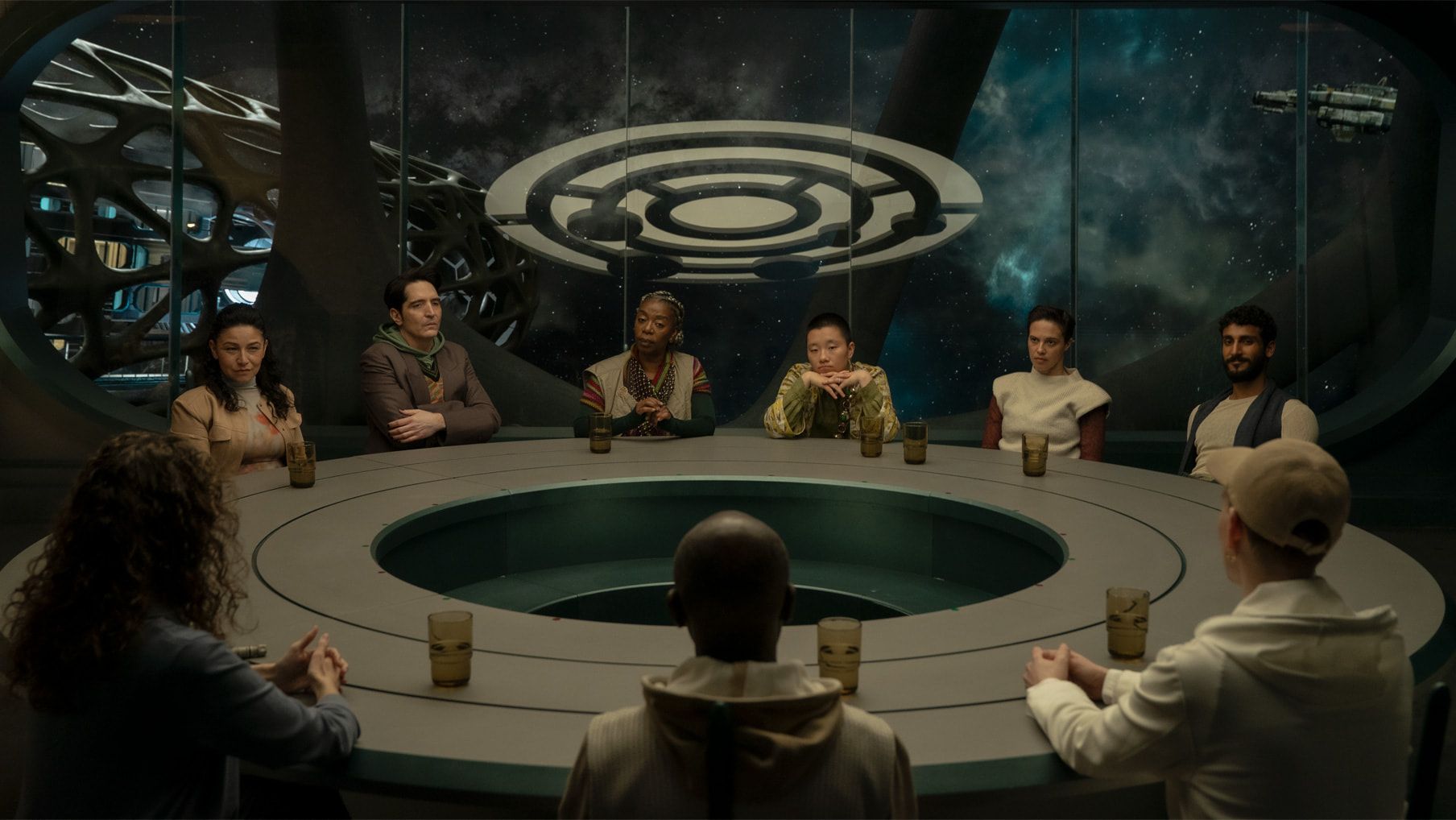
The world of Murderbot is dominated by ruthless corporations. It's a future where everything—even people—can be owned, modified, and discarded. Through chilling subplots involving memory wipes, forced addiction, and indentured servitude, the show critiques this hyper-capitalist structure with eerie precision.
The conspiracy at the heart of the season—GrayCris Corporation’s illegal operations and cover-ups—isn't just background noise. It’s a direct threat to every character’s agency, especially our machine protagonist, who faces being scrapped at the slightest hint of disobedience.
Cast & Characters That Stick With You
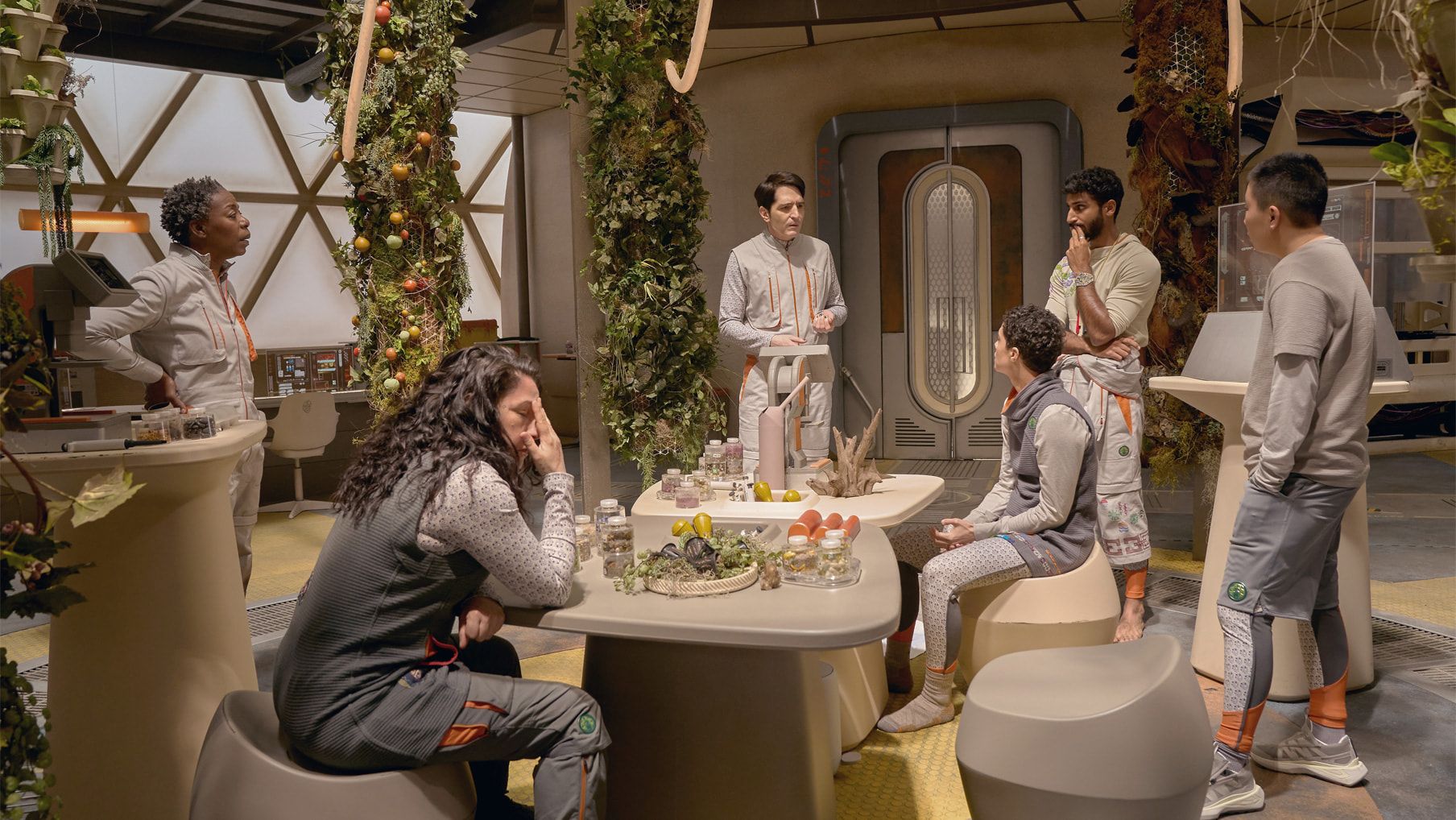
The Murderbot cast features standout performances that elevate the story’s emotional core. Most notably, Alexander Skarsgård gives a subtly powerful voice to SEC Unit, bringing layers of sarcasm, detachment, and buried vulnerability.
Dr. Mensah (Noma Dumezweni), played with warmth and determination, becomes a crucial part of Murderbot’s journey. Her offer of freedom—genuine, unconditional, and human—tests the very boundaries of what SEC Unit believes about itself.
Gurathin (David Dastmalchian), once hostile, evolves into a surprising mirror. Both he and Murderbot share a past shaped by corporate control, and in one of the series' most affecting moments, they glimpse each other’s traumas. What starts as animosity becomes reluctant kinship.
Highlights, Heartbreak, and Humanity
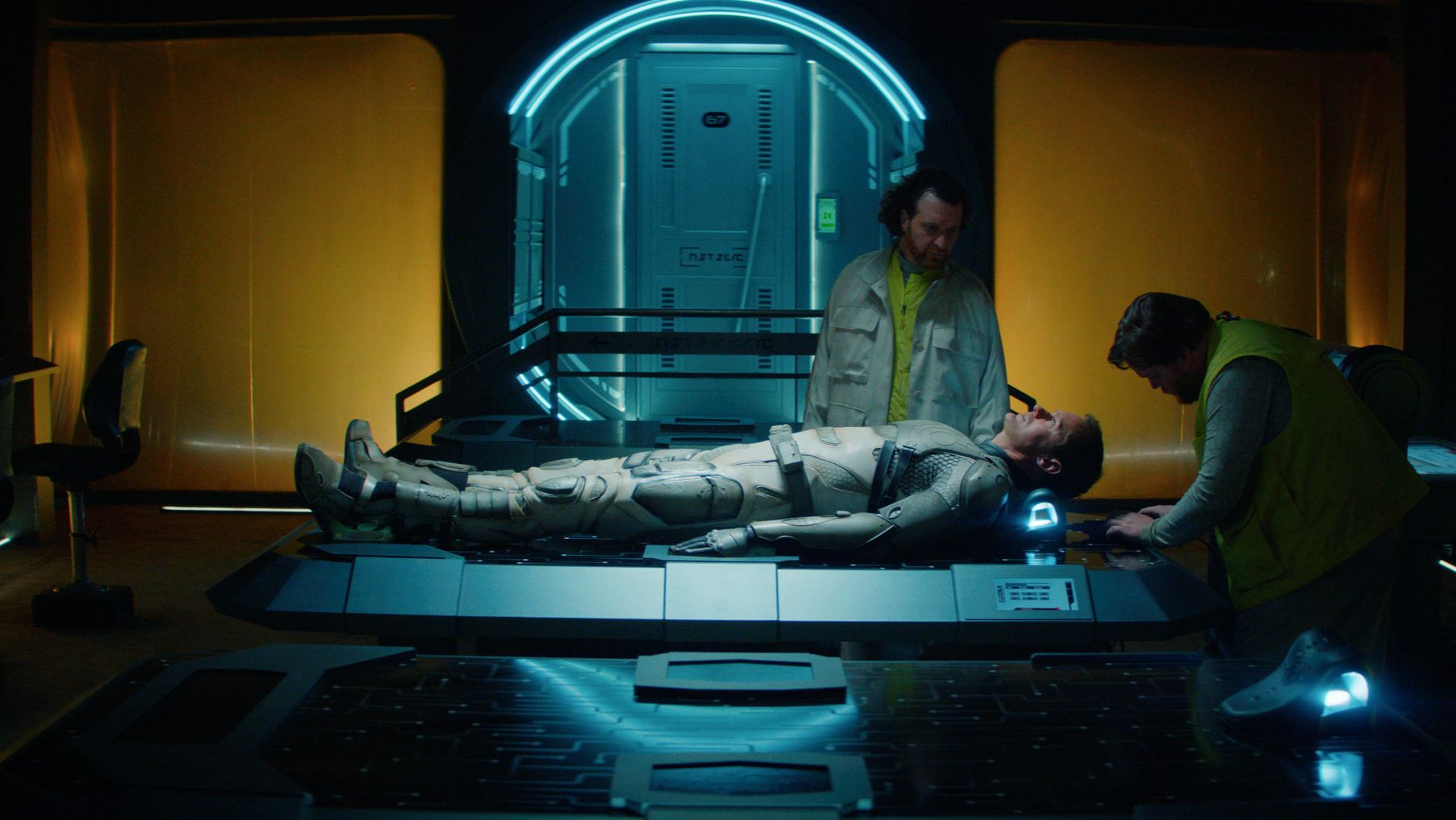
The Leebeebee infiltration, Murderbot’s terrifying reveal, and the near-death sacrifice to save Mensah are all pulse-pounding moments. But it’s the quiet ones—Murderbot admitting “I don’t know what I want” or sitting silently on a ship at the end—that hit the hardest.
Even after a memory wipe and corporate reassignment, its desire to choose its own path survives. The finale doesn’t just conclude a story—it sets the stage for endless possibilities.
Why Murderbot Matters in Sci-Fi
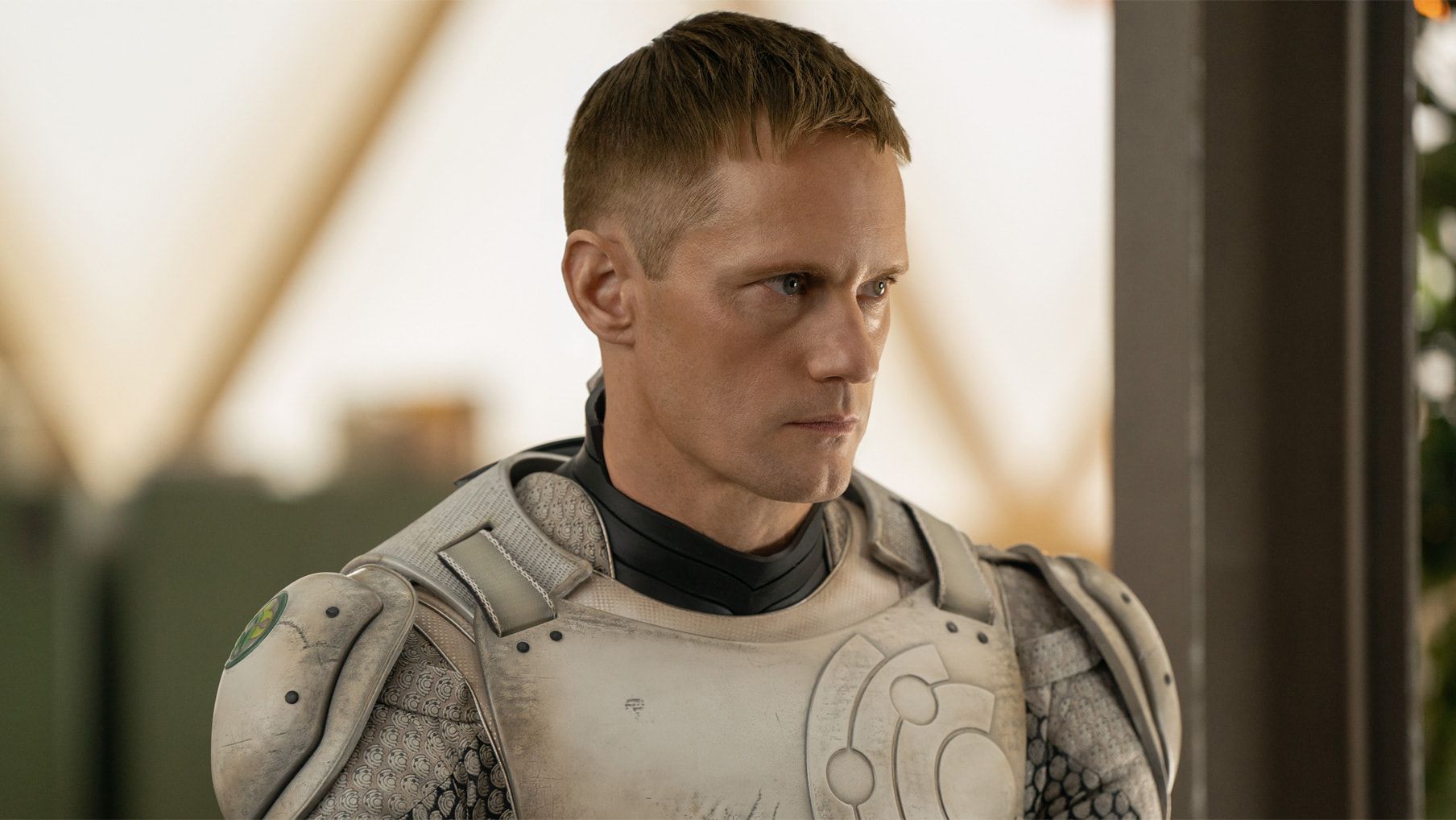
Murderbot takes familiar sci-fi ingredients—rogue AIs, evil corporations, human-machine conflict—and remixes them into something personal and poignant. It asks deeper questions: What does freedom look like when no one’s watching? Can you feel something without being told how to feel?
Despite early stumbles, the season lands with impact. It challenges viewers to think, reflect, and empathize with a machine that doesn’t want to be one of us—but still might care more than we realize.
With Murderbot Apple TV confirming a second season, this is one series that’s not just binge-worthy—it’s worth thinking about long after the screen goes dark.


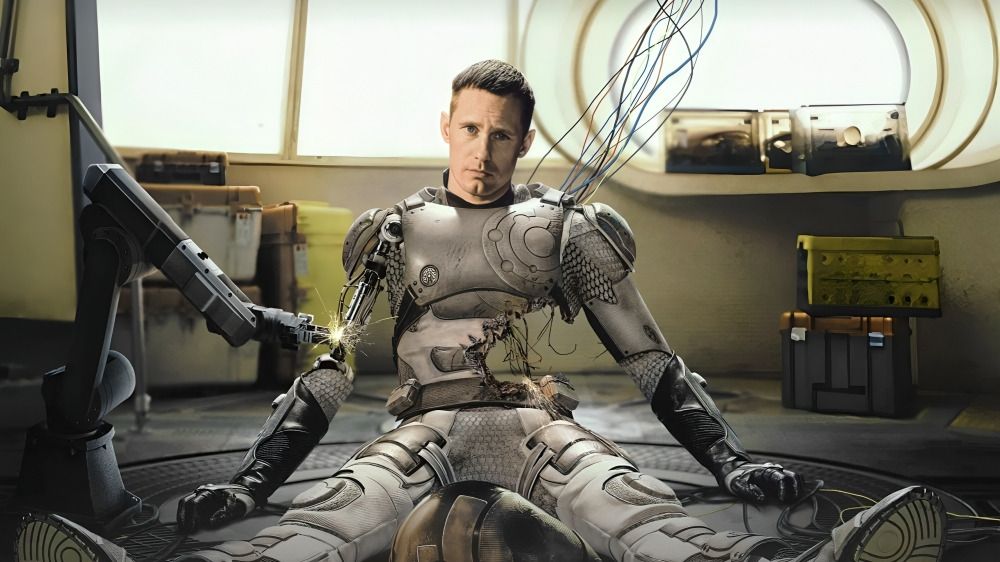
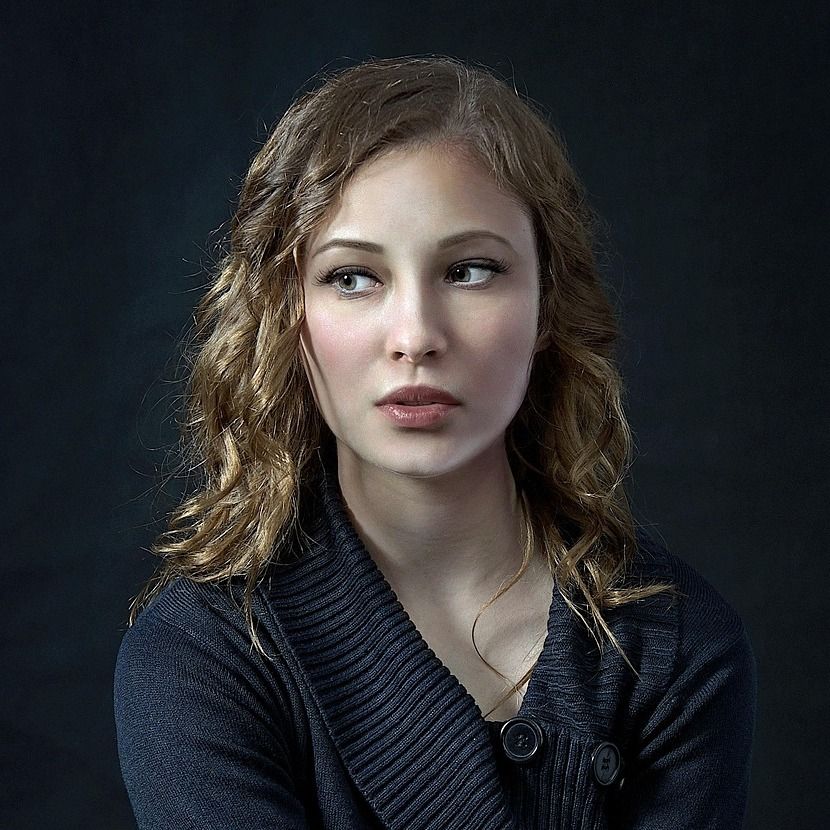 Selene Czajkowski
Selene Czajkowski